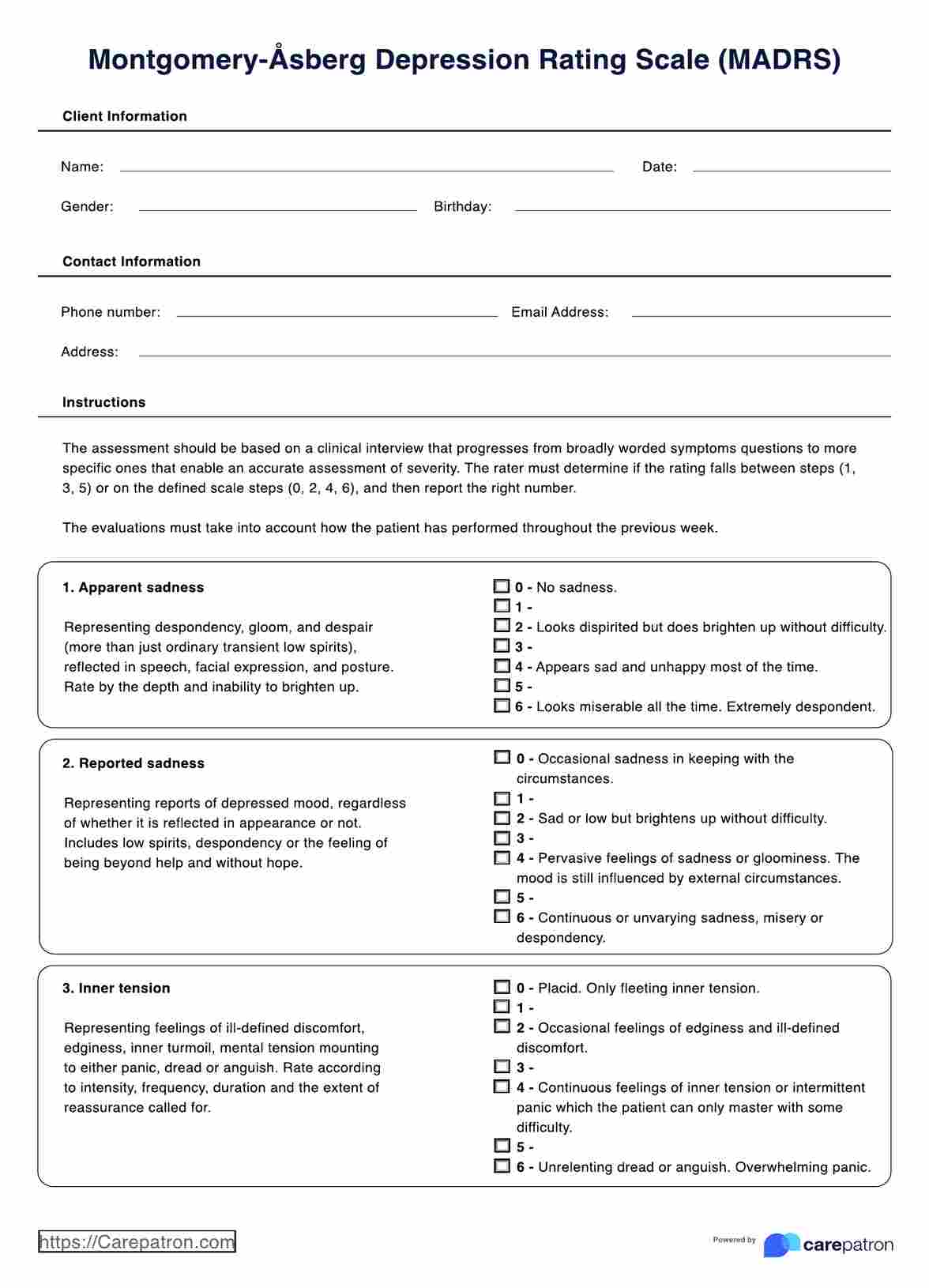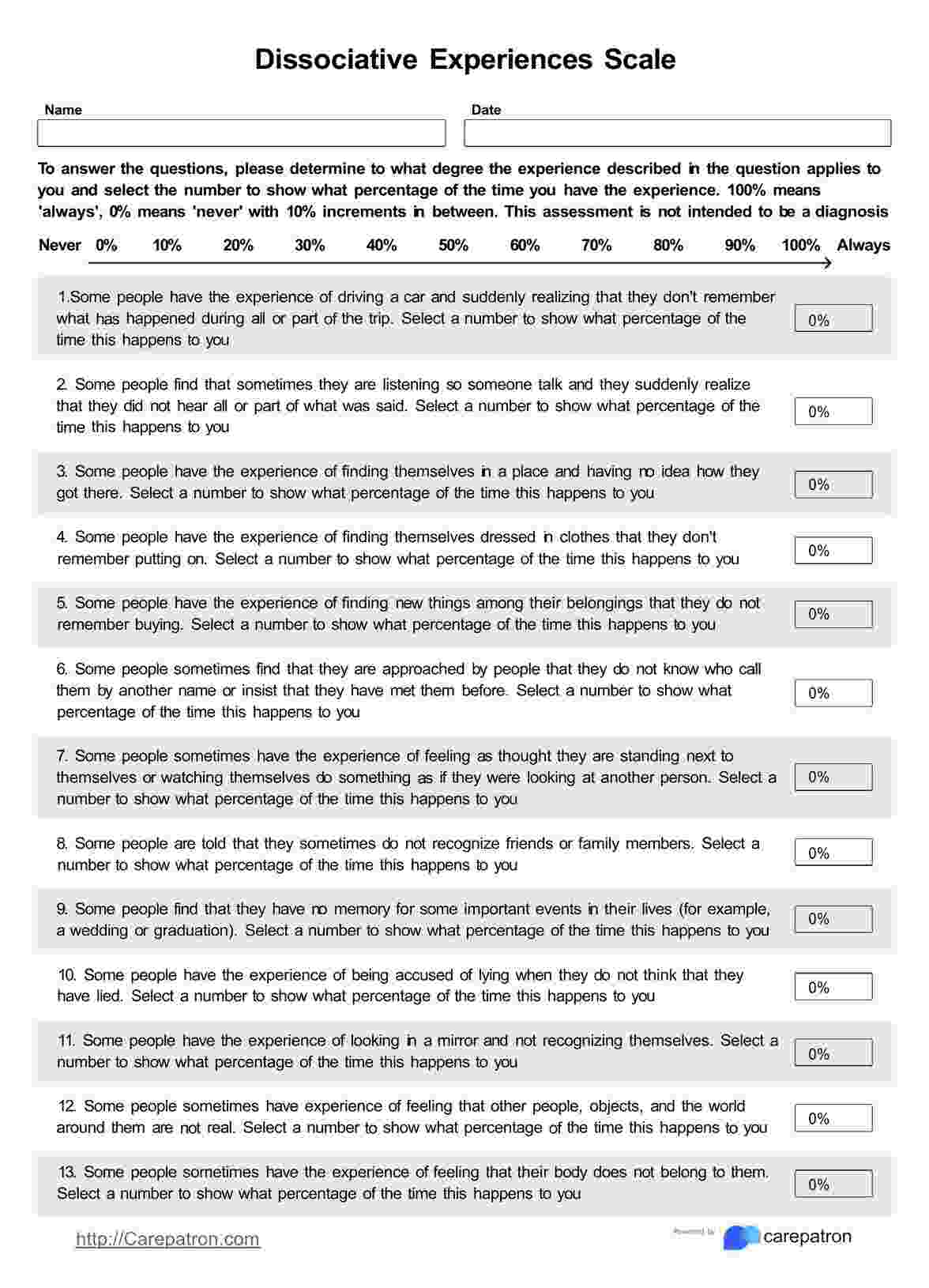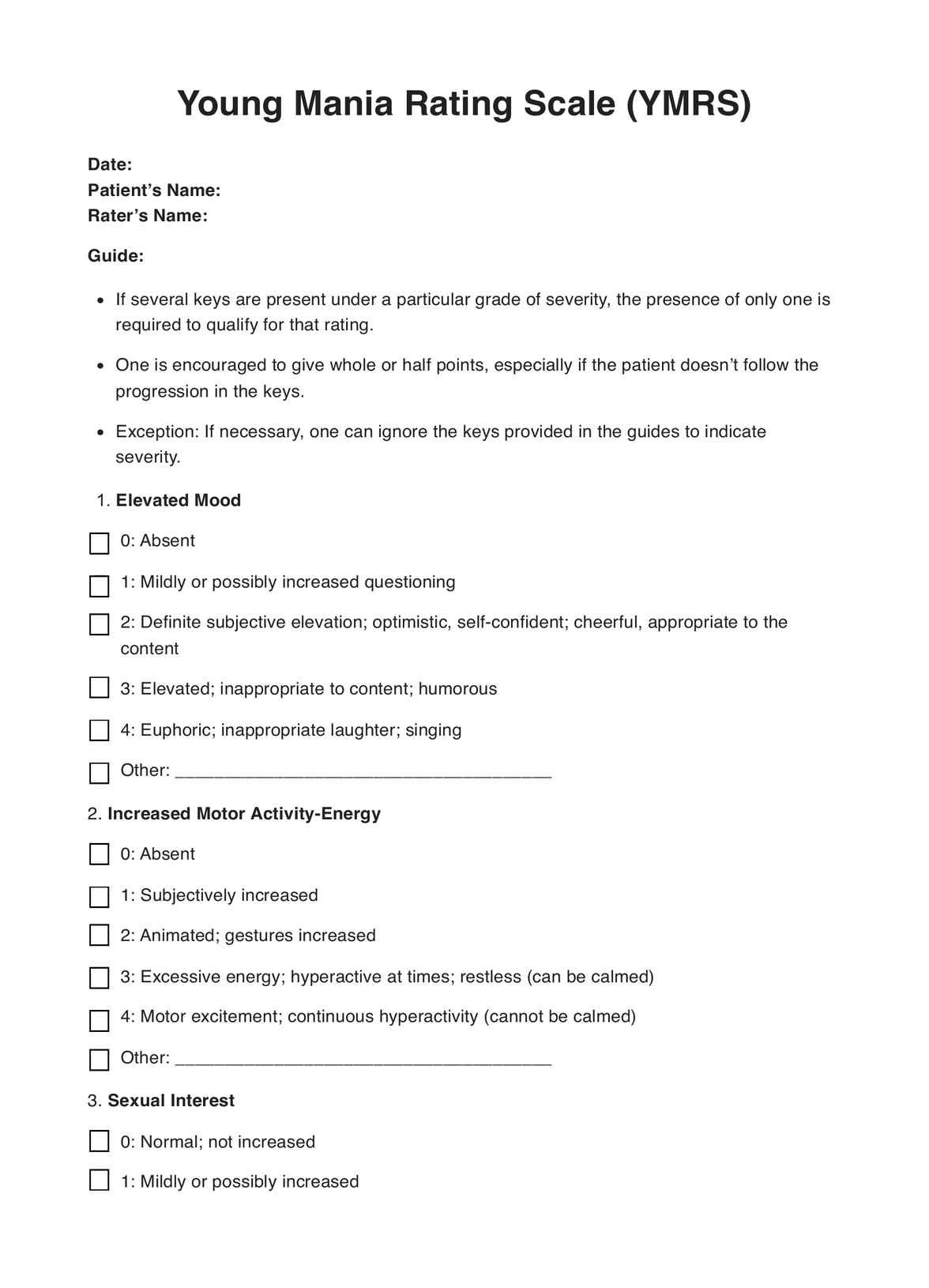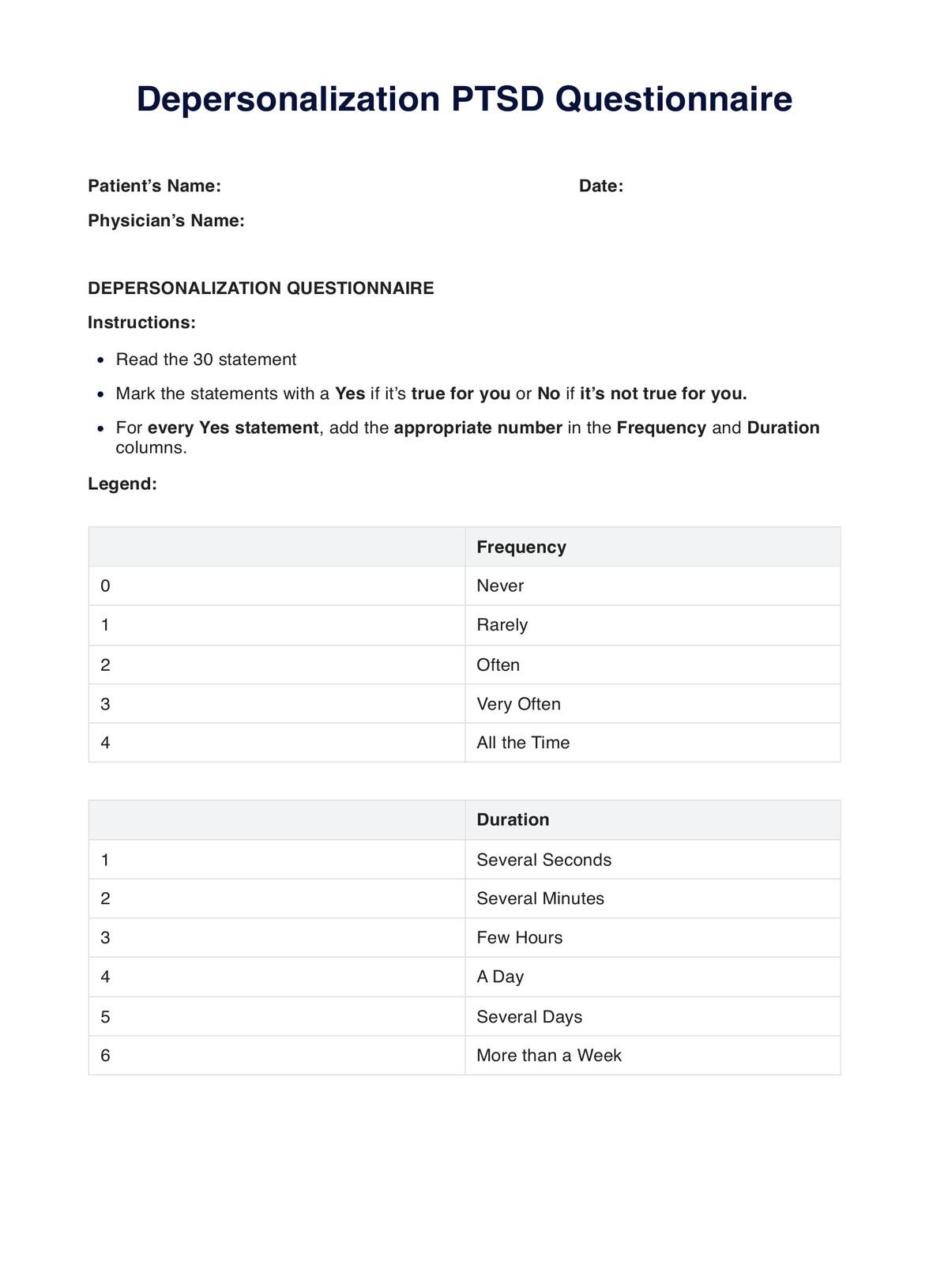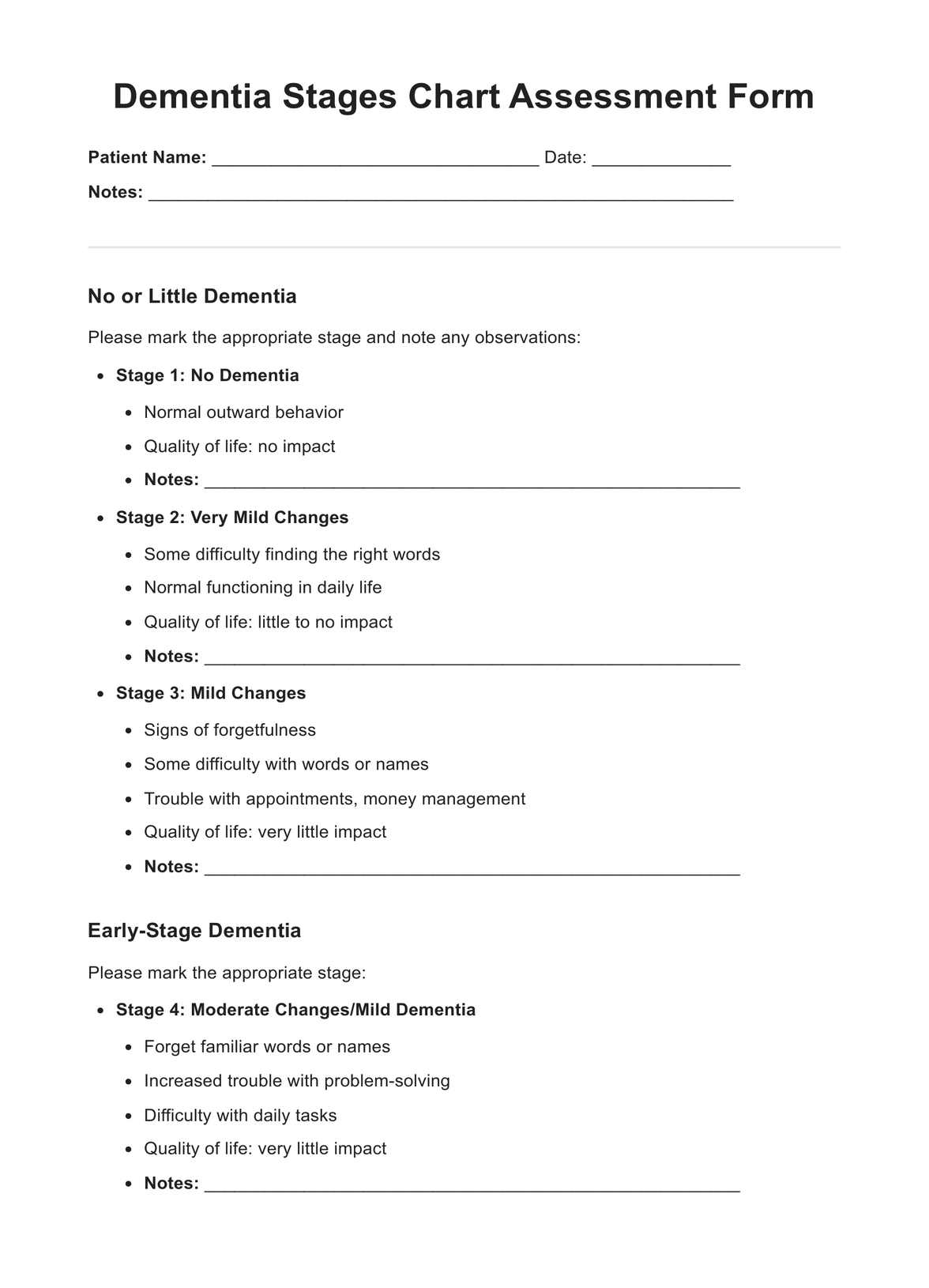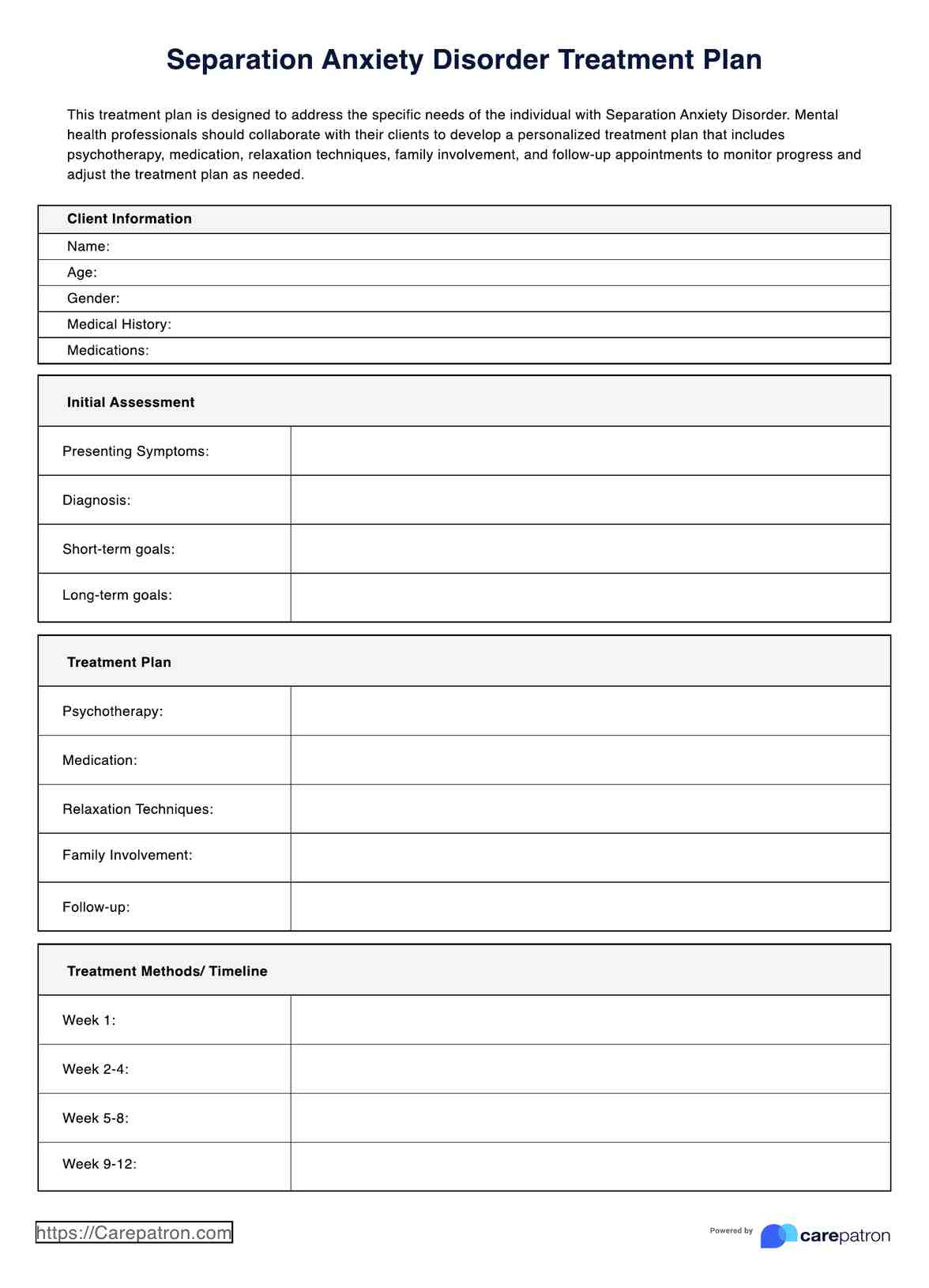Gender Identity Quiz
Explore the complexities of gender identity with our Gender Identity Quiz. Understand the nuances of gender expression and learn how to interpret results effectively.


What is gender identity?
Gender identity embodies the intrinsic perception individuals hold regarding their gender, which may or may not synchronize with the sex assigned to them at birth. It encapsulates a profound internal understanding of self and how individuals express and perceive their gender vis-à-vis societal norms and expectations.
While many individuals' gender aligns with their sex at birth, resulting in a sense of congruence between their inner identity and outward presentation, others may prefer to identify beyond the binary confines of male and female. These diverse identities encompass non-binary, genderqueer, genderfluid, and agender orientations, challenging the notion of only two genders.
Additionally, certain cultures recognize alternative gender, such as the third gender, further complicating the traditional binary framework. Such recognition underscores the fluidity and multifaceted nature of gender expression, emphasizing that it extends beyond rigid categorizations.
Social and cultural factors profoundly influence identity, shaping individuals' perceptions, behavior, and expressions in relation to societal expectations and stereotypes. These influences can create tension between one's internal sense of self and external societal pressures, influencing the journey of self-discovery and acceptance.
Understanding and embracing diverse gender identities are critical for fostering inclusive and supportive environments in society where individuals feel acknowledged and validated in their identities. This entails recognizing and affirming the unique experiences and perspectives of individuals across the gender spectrum, advocating for equality, and challenging the notion of binary gender norms.
Gender Identity Quiz Template
Gender Identity Quiz Example
What is a Gender Identity Quiz?
A Gender Identity Quiz is a structured mechanism for individuals to delve deeper into their understanding of gender expression. It offers a framework for introspection and self-reflection, guiding participants through a series of thought-provoking questions designed to illuminate various aspects of their identity journey.
These quizzes often encompass a wide range of topics related to identity, including personal experiences, perceptions of gender roles, feelings of gender dysphoria or discomfort, and attitudes toward societal expectations of gender expression. Questions may prompt individuals to reflect on their childhood experiences, cultural influences, and moments of gender affirmation or challenges they have encountered throughout their lives.
From a research perspective, Gender Identity Quizzes can contribute to a better understanding of gender trends and experiences within different populations. Researchers can use the data collected from these quizzes to inform studies on gender development, identity formation, and the impact of social and cultural factors on gender expression.
How does our Gender Identity Quiz template work?
Using our template is a straightforward process. Here's how to incorporate it in your practice:
1. Introduce to the quiz
Introduce participants to the purpose and structure of the Gender Identity Quiz. Explain that the quiz is designed to help individuals explore and reflect on their gender in a supportive and non-judgmental environment.
2. Access the quiz
Provide participants with access to the Gender Identity Quiz template. This could be through a downloadable PDF, an online survey platform, or a printed copy, depending on your preferred method of administration.
3. Complete the quiz
Encourage participants to complete the quiz at their own pace and in a comfortable setting. Let them know that there are no right answer or wrong answers, and they should respond based on their own experiences and feelings about gender.
4. Reflect on the questions
The quiz will include a series of reflective questions covering various aspects of gender, such as personal experiences, feelings about gender roles, and attitudes toward gender expression. Participants should take time to contemplate each question and provide honest responses.
5. Submit and review
Once participants have completed the quiz, they can submit their responses for review. Results may be automatically generated or compiled for later analysis, depending on the quiz format.
How do you interpret the results of this quiz?
Interpreting the test results of a Gender Identity Quiz requires a nuanced and empathetic approach that acknowledges the complexity of gender. Here are some critical considerations for interpreting quiz results:
- Individualized perspective: Recognize that gender identity is deeply personal and unique to each individual. Quiz results should be viewed in the context of an individual's experiences, feelings, and perceptions about their gender.
- Fluidity and diversity: Understand that gender identity exists along a diverse spectrum, encompassing a wide range of identities beyond the traditional binary of male and female. Quiz results may reflect varying degrees of alignment with societal expectations of the same gender or indicate a fluidity in gender expression over time.
- Self-reflection: Encourage individuals to reflect on their emotions about their quiz results and consider how they resonate with their understanding of gender. This may involve exploring feelings of affirmation, validation, confusion, or uncertainty prompted by the quiz questions and responses.
- Validation and affirmation: Validate and affirm individuals' gender identities, regardless of how they may align or diverge from societal norms or expectations. Offer support and reassurance, emphasizing the importance of self-acceptance and authenticity in embracing one's gender identity.
- Exploration and growth: Emphasize that gender identity is a journey of self-discovery that may evolve and change over time. Quiz results can serve as a starting point for further exploration and dialogue about gender, providing opportunities for individuals to deepen their understanding and acceptance of themselves.
What are the benefits of taking a Gender Identity Quiz?
Taking a Gender Identity Quiz can offer several benefits for individuals seeking to understand and express their gender identity more fully. These quizzes provide an opportunity for self-reflection, validation, and empowerment and foster constructive dialogue about gender diversity. Here are some key benefits of engaging with a Gender Identity Quiz:
- Enhanced self-understanding: Engaging with a Gender Identity Quiz allows individuals to explore and reflect on their gender identity, personality traits, and beliefs. By examining how their feelings and experiences relate to various categories and societal expectations, individuals can gain deeper insights into their authentic selves.
- Validation of diverse identities: Gender Identity Test provide a platform for individuals to acknowledge and validate diverse gender beyond the default binary notion of boy or girl. They help challenge assumptions about how gender should match biological sex or personality, fostering inclusivity and acceptance of a broader range of gender expressions.
- Empowerment through self-expression: Through answering quiz questions, individuals can articulate their experiences and beliefs regarding gender and body image. This empowerment facilitates the expression of one's true self, enabling individuals to navigate societal expectations and stereotypes more confidently.
- Facilitates constructive dialogue: Taking a Gender Identity Test encourages open and constructive dialogue about gender diversity and acceptance. By sharing quiz results and discussing interpretations, individuals can foster understanding and empathy for the diverse experiences and perspectives of others, promoting inclusivity and mutual respect within.
Commonly asked questions
Understanding one person's gender identity fosters self-awareness, acceptance, and authenticity. It also promotes empathy and respect for diverse gender experiences and societal identities.
Yes, a person's gender can evolve and change over time. Gender identity is not fixed and may be influenced by personal life experiences, self-discovery, and societal factors.
Gender Identity Tests can be valuable tools in research studies and therapy programs. They can help researchers gather data on gender identity trends and inform therapeutic interventions to support individuals in exploring their gender.


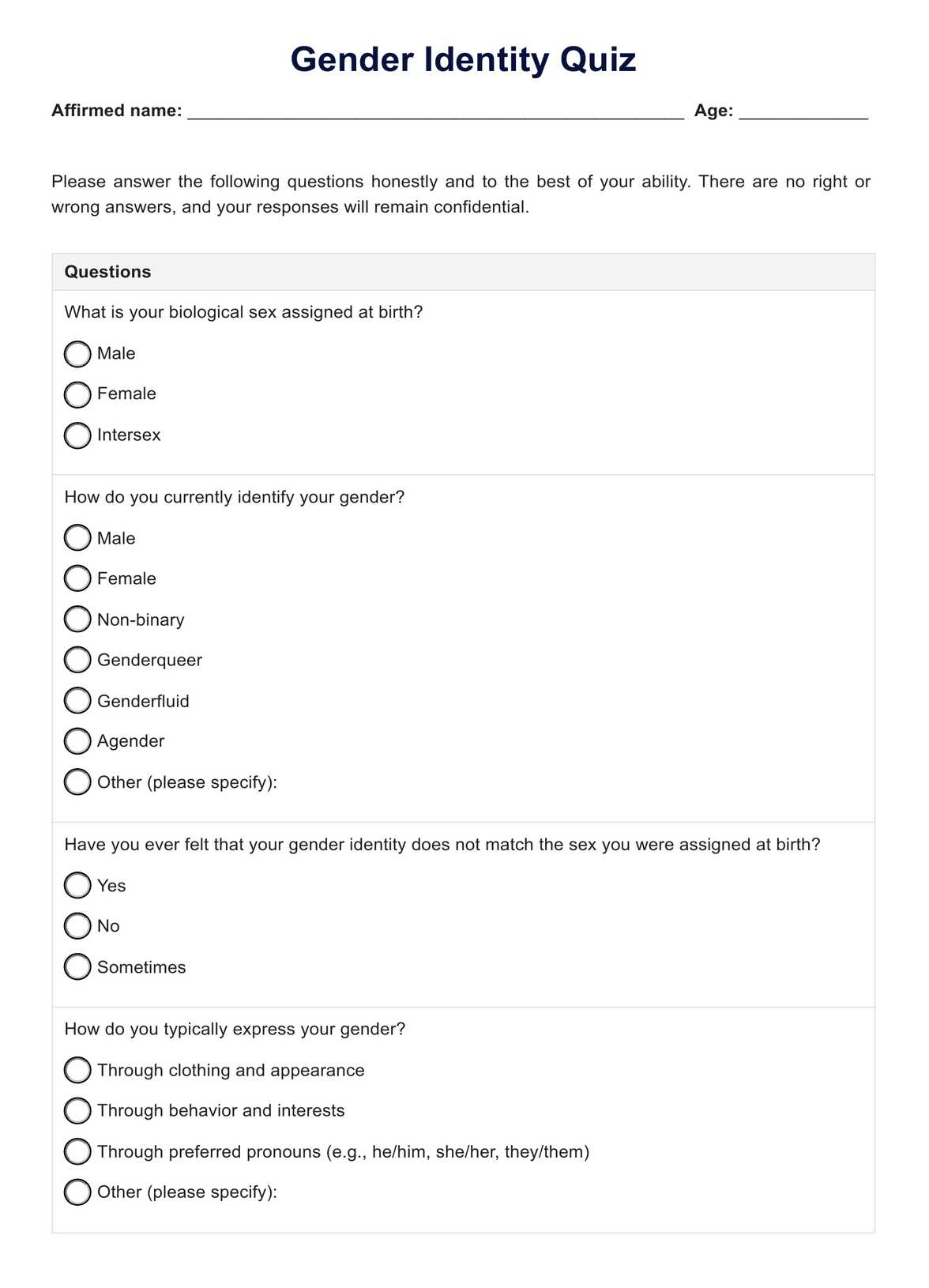
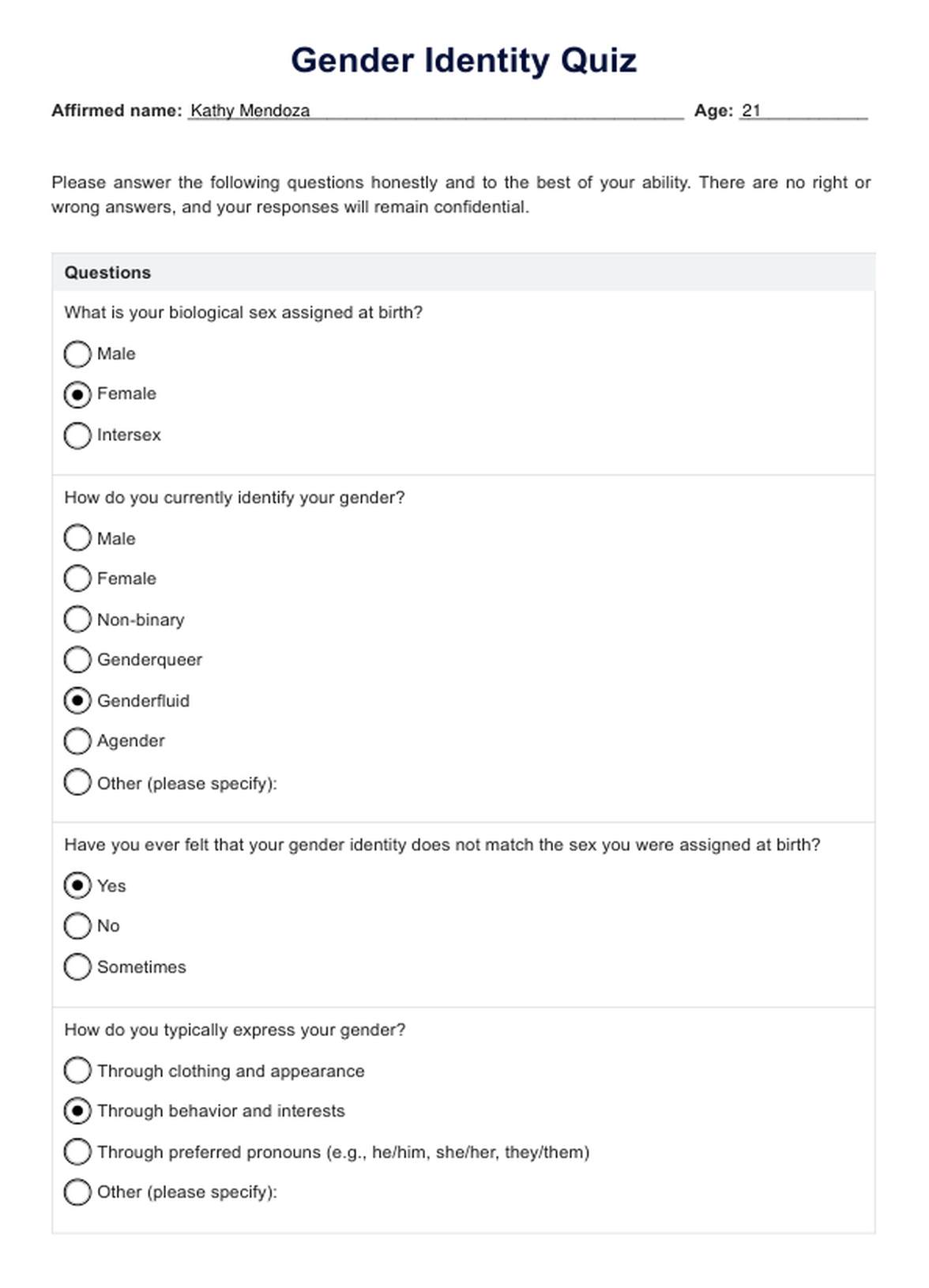

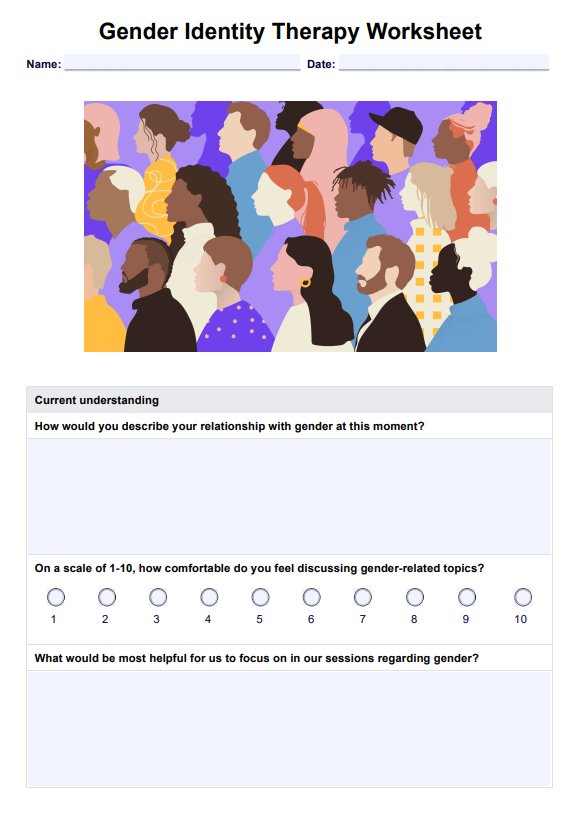
















-template.jpg)



















































































